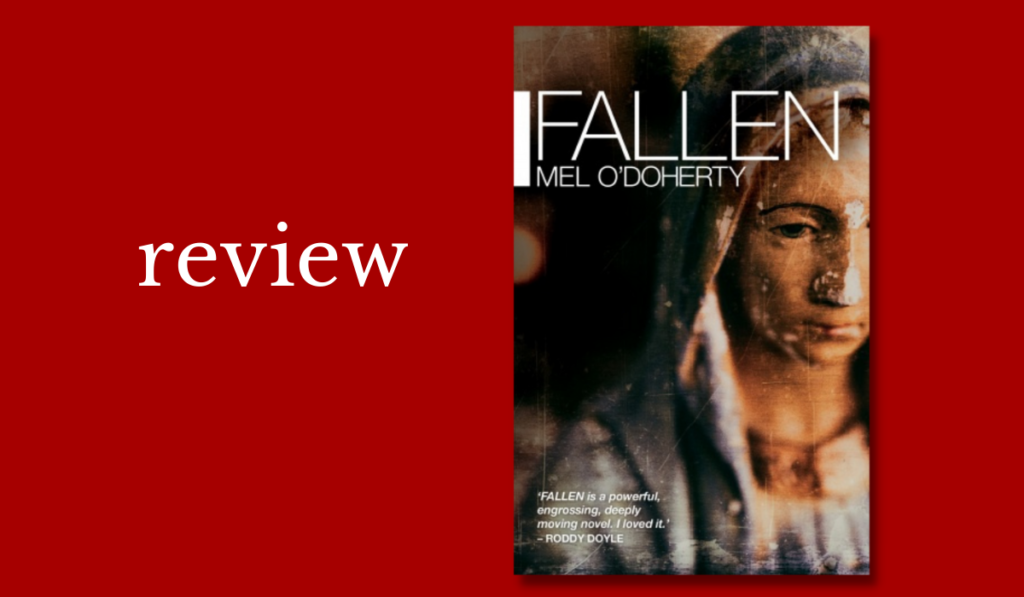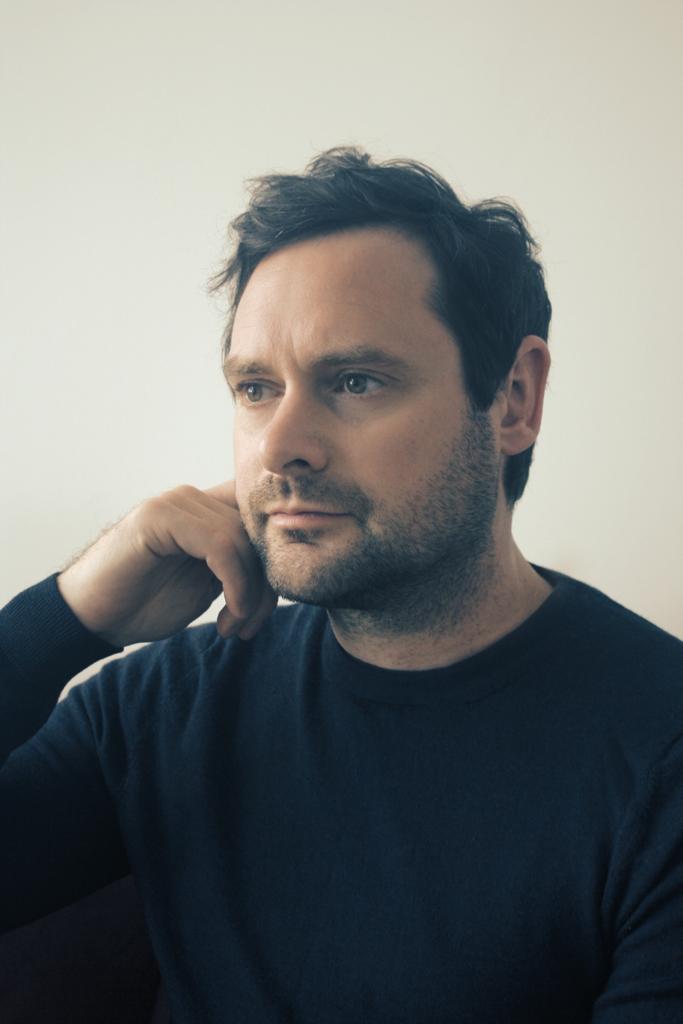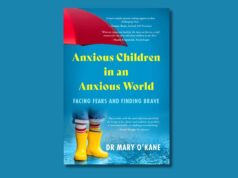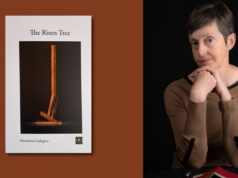
Fallen|Mel O’Doherty|Bluemoose Books|€9.99
Eoghan Smith takes a deep dive into Fallen— a novel with the flint of hard truth, ruled by a dark supremacy
by Eoghan Smith
Bessborough Mother and Baby Home in Cork City operated from 1922 to 1999, virtually the entire duration of the foundation of the Irish State to the close of the twentieth century.
Reports not just from Bessborough, but from Mother and Baby Homes throughout Ireland record widespread cruelty and abuse, a catalogue of grotesque mistreatment which makes for horrific reading.
That such a regime existed for so long and was so little spoken about—even acknowledged—demonstrates much about the power of collective silence that prevailed in Ireland.
Despite a general hostility towards the insularity and restrictiveness of the nascent Irish State and its alliance with the powerful Catholic Church, little of twentieth century literature deals directly with the details of Mother and Baby Homes.
This has changed in recent years, with incandescent writing from poets such as Annemarie Ní Churreáin and Kimberly Campanello, and with As You Were, Elaine Feeney’s award-winning novel.
Realist, gritty novel
Mel O’Doherty’s debut Fallen also faces this terrible chapter of Ireland’s past. The novel—realist, gritty, and written in unadorned language—centres on a quiet, lonely, and emotionally stunted teacher from Cork named Michael Connolly.
Early in the novel we learn that Michael’s mother Elaine, who fell into alcoholism and depression sometime in the late 1970s, spent time in Bessborough as a teenage girl in the 1940s, a decade when Bessborough had infant mortality rates as high as 68% (according to one official report in 1943), and was temporarily closed due to official concerns. We discover that Elaine’s efforts to tell the truth about what happened to her in Bessborough—including picketing mass—were disbelieved, leading to her psychological deterioration and eventual suicide.
The callous disregard and subsequent local gossip that Elaine encounters are powerful depictions of the wilful ignorance, derision and ostracisation to which former Mother and Baby Home residents were subjected.
Doctors encourage Elaine to talk, only for her then to be sectioned to a psychiatric hospital: Fallen is particularly interesting in this portrayal of a how a moral-religious code was reinforced by medical and judicial institutions.
A dark supremacy
The picture O’Doherty creates of Ireland in the twentieth century is that it was by turns a joyless, cruel, supine and austere country, one where individuals were sacrificed for collective ideologies, where personal responsibility was non-existent, and where shame, fear and exploitation – from the intrapersonal to the relationship between the Church, State and individual – were commonplace.
In O’Doherty’s hands, the dark supremacy of this vision of Ireland’s past is almost overwhelming; the first half of the novel deals primarily with Michael’s despair and guilt over his mother. Such is the weight of the past (and Michael is a history teacher), his world is one where not much else can survive outside this frame of reference.
His mother’s fate shapes how Michael interacts with everything and everyone around him.
Apart from Michael’s father, other characters in the novel as a consequence (and there are very few characters in the book) stand in the half-gloom cast by Michael’s family story. Michael’s best friend, the fragile writer John, who is grappling with his own demons and who will not show his unpublished writing efforts to anyone, fades dimly out of the narrative.
In a subplot, Michael spends many years in love with but doing nothing about the love of his life and fellow teacher, Jill. Indeed, Michael is sexually immature and neither can he reveal his love for Jill. Instead, he masturbates to internet pornography, and at one point visits a brothel one night in Poland on a trip to Auschwitz while the children he has in his care are (presumably) asleep in the hotel.
Defiance and resourcefulness
The second part of Fallen, which brings us back in time to recount Elaine’s story, is less introspective and broadens our sympathies considerably. As Elaine’s horrific story unfolds, O’Doherty skilfully provides us with an image of a defiant and resourceful woman who somehow manages to survive a litany of traumas, only to be derided, silenced, ignored and once more shut away from those who do not want to hear and see the truth, including her own family.
Her story is one where innocent and brave women were destroyed through a combination of masculine violence, silent complicity, gargantuan ignorance, and moral cowardice.
O’Doherty’s prose is crisp and unembellished. As if not wishing to distract the reader with anything other than occurrences, his sentences, as Sartre once said of Camus, are like islands. Here, Michael is sitting on a beach:
He walked for a few minutes on the hard sand, then turned up and sat beneath the dunes. He pulled his knees up to his chest and held them there with his arms. He wedged his chin between his knees and stared out to the water and the water barely moved. His anorak crackled a little but when the breeze blew. It was a cold breeze and the sand on which he sat was cold.
This compelling, matter-of-fact style is highly effective in communicating not just Michael’s psychological and emotional numbness, but also the wider themes of the novel. In Fallen, there is no whiff of romanticism, no intrusions of the wandering imagination, just the cold hard immutable truth.
Hard-won truth
In Irish history, truth is a hard-won thing; the trophy is often likely to smash into fragments on the ground as the would-be victors wrestle to lift it. This was well known to writers in twentieth-century Ireland, who played their own roles in the shaping of the historical narrative, and indeed, in promoting or contesting nationalist or religious myths of Irish history.
It accounts, for instance, for the sense of protest against the Church and State often found in Irish writers such as Patrick Kavanagh, Edna O’Brien, John McGahern or Pat McCabe. This push and pull for truth continues to shape much of Irish literature and how it responds to the past.
Leaving aside claims about procedural flaws, the recent Mother and Baby Homes Commission report was also heavily criticized for its apparent deflection of the blame away from specific individuals and institutions towards a complex network of social, partriarchal and legal structures in which everybody and nobody appeared to be blamed.
Just as Irish writing was a battle-line in the revisionist-nationalist debate of the 1970s to the 1990s, one suspects that literary works such as Fallen will continue to be an important cultural forces in shaping the ongoing disputes about Irish historical narratives.
Malice and intent
In this context, O’Doherty’s book might be said to consolidate a view that the nuns who operated these homes were not just cruel through systematic and structural neglect, ignorance or malfeasance, but there was often genuinely malicious will behind the treatment of the girls, women and babies in the homes.
Elaine tells Michael that they (the nuns) killed her baby, while Michael remarks to his father that ‘there was something intentional about it’. One senses in Fallen the indignation of the author behind the narration, which occasionally breaks through the taut surface. Accordingly, one of the most provocative dimensions of the novel is the juxtaposition of references to the Nazis with the Irish mother and baby homes. In one extended scene, Michael and Jill (and John who tags along) bring their secondary school pupils on a trip to Auschwitz, where the overwhelming experience of the camp suddenly reminds John of a story his mother once told him about how nuns forcibly removed a baby from a mother’s hands.
Such illuminations of Michael’s thoughts are suggestive of how the fleeting nexus of history, memory, and trauma can be internalised and processed at a specifically individual level.
And although O’Doherty does not go so far as to do so directly, comparisons between the Holocaust and the Mother and Baby Homes have been made more explicitly within the Irish public sphere; for instance, in 2017 the Waterford TD John Halligan compared the mortality rates in the Tuam Mother and Baby Home to that of Belsen.
Troubling questions
Fallen raises many troubling questions about the nature of post-Independence Irish society, and in particularly the treatment of girls, women and babies.
It raises important issues about the failure of men, along with the State, the judiciary and religious institutions.
There are questions too about how to treat this particular part of the Irish past from an artistic point of view. Since the most powerful and most important of those stories will be those told by the survivors, what might be the necessity for fictional accounts? Might the past be served best by recounting it as it was, not inventing it as it could have been?
Here O’Doherty’s book shifts us from the ground of fact into the plane of truth and gathers us towards the incontestable, ethical heart of the matter: you cannot ignore, you cannot silence. Reckon with the past. Tell the truth. With exceptional clarity, Fallen issues the oldest and most powerful artistic statement of all.

Eoghan Smith is the author of The Failing Heart (Dedalus 2018). His second novel, A Provincial Death, will be published by Dedalus autumn 2021.












